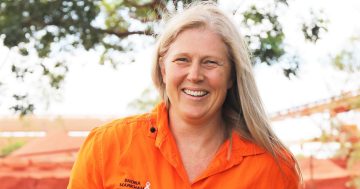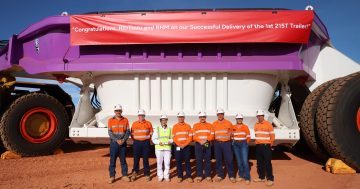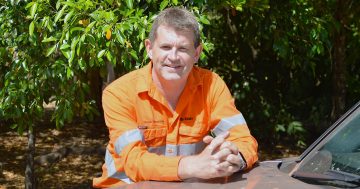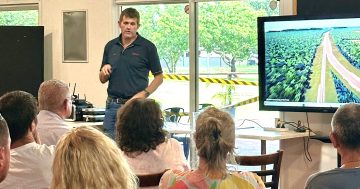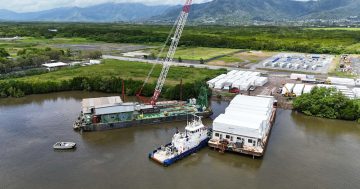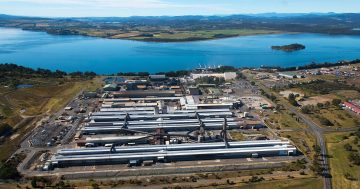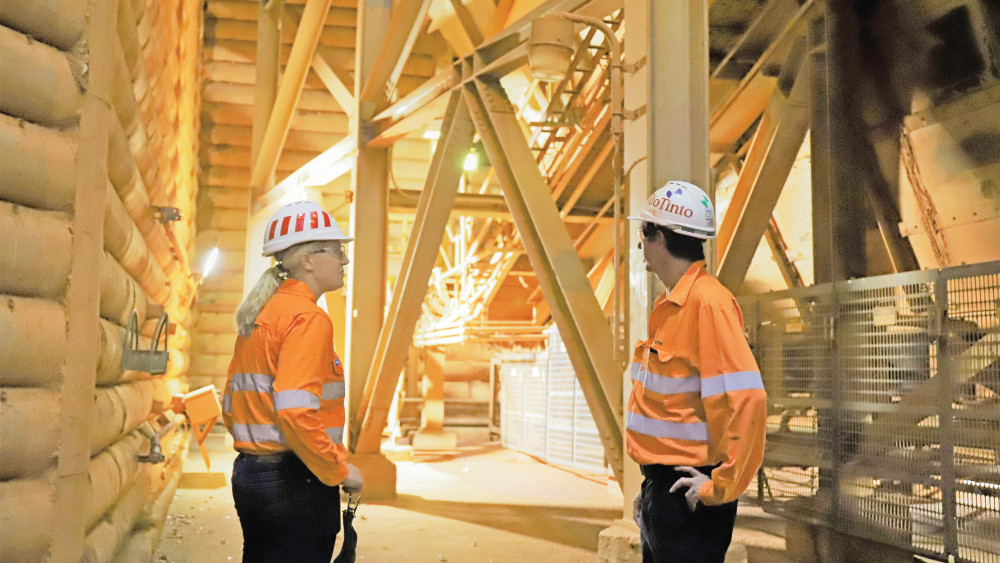
Rio Tinto Weipa general manager Shona Markham (left) inside the bene plant which had been a major issue.
SHONA Markham says she is loving life in Cape York – especially the warmer weather – as she adjusts to her new role as the general manager for Rio Tinto’s Weipa operations.
However, it’s the challenge of the job that has been the most enjoyable aspect for the mother of three, who was sent north to help steer Rio Tinto’s bauxite mines back on track.
“I’m loving it. It’s a really big change compared to what I was doing (in Bell Bay, Tasmania),” she told Cape York Weekly.
“I’m loving the town and all the things that I knew I would like about Weipa and the Cape.
“The kids went for a bike ride on their own to a friend’s house and I felt completely fine about their safety. Those are the little things that plenty of Australians can’t do.”
By Rio Tinto’s own admission, the Weipa operations have not been meeting their high standards.
It’s not just about tonnes on ships, either, although that is a big part of the problem.
Rio Tinto Weipa has been in a cultural transition and attitudes have needed to be adjusted.
The company’s treatment of contractors, for starters, was cited as a major issue in an independent report commissioned by Rio Tinto.
Then there are the workers.
Nearly half of all employees who responded to the external review of the workplace culture commissioned by Rio Tinto said they had been bullied, while racism was found to be common across a number of areas.
Ms Markham did not shy away from addressing the issue and said she was eager to make changes that improved the wellbeing of employees.
Which is why she is starting at the bottom and working her way up.
Rather than bog herself down with meetings with superintendents and managers, Ms Markham has been out on site, talking with the workers and getting a feel for their day-to-day life.
She’s spent at least one day a week at Amrun (south of Weipa) and has even jumped in a haul truck to hear first-hand from the operators.
“We have the most incredible people running our operations,” the GM said.
“My job is to support them.”
One example of making life easier for the workers is addressing a shortage of toilets, especially for women, on the mine sites.
“It’s a small thing but if you listen, and then go and put toilets at the right place, you are valuing your workers more than you are putting tonnes out the gate.
“The tonnes will take care of themselves if we do those little things properly.”
One issue Rio Tinto Weipa has suffered from in recent years is the plethora of people in acting positions.
Often the company triggered a chain reaction which would see one person go on long-service leave and result in several people in acting roles.
“We have moved quickly to get people in permanent roles and that will solve a lot of problems,” Ms Markham said.
As for production, the good news is that Weipa is on track to meet its target this year after a shaky start to 2022.
“We are confident we will hit our production plans,” she said.
At Amrun, for example, she acknowledged the hard working team in the beneficiation plant that managed to turn things around.
“There had been a real bottleneck in the bene plant and we were behind production plan in March,” Ms Markham said.
“At one point you would be knee-deep in bauxite but now it’s in a very good state from a housekeeping perspective.
“We were 100,000 tonnes ahead of plan in April.”
There were two major belt failures in March and Rio Tinto says its now addressing maintenance plans and making sure spare parts are on-hand.
“The positive about those breakdowns is that we were able to bring forward our scheduled maintenance from May and get it done in March, so we won’t have that shutdown in May.”
Apart from running two major mines that are divided by two large rivers, the Rio Tinto Weipa role also comes with the responsibility of the township.
And while the Weipa Town Authority runs almost independently of the mining company, there is still a lot of input required from the GM.
Ms Markham said she was aware of the biggest issues in town – housing, child care and normalisation – and said she wasn’t far from announcing plans for at least two of them.
“Those are critical issues and we are developing a plan to solve housing and child care,” she said.
“We don’t think it’s wholly Rio Tinto’s issue to solve but we recognise we are a leading player and need to turn talk into action.”


